There was a rare activation of the emergency alert system in the United Kingdom on Friday as thousands of residents in a regional city were evacuated from a Second World War bomb.
A 500kg (approximately 1,100lbs) Second World War era bomb was discovered under a garden by a construction crew on Thursday. A 300-meter (330 yard) exclusion zone around the property was established by police, and after it was decided the military would carry the bomb out to sea for disposal the evacuation area was extended around the planned route as well.
It was decided destroying the bomb in place would not be possible as doing so would likely take out several houses.
The bomb was found in the city of Plymouth, Devon, the home of one of Britain’s major naval bases facing France to the south and the Atlantic Ocean to the West. The proximity to the continent and its strategic importance saw Plymouth become a major target for German bombing the in the Second World War, and much of the city centre was destroyed in the hundreds of air raids it suffered.
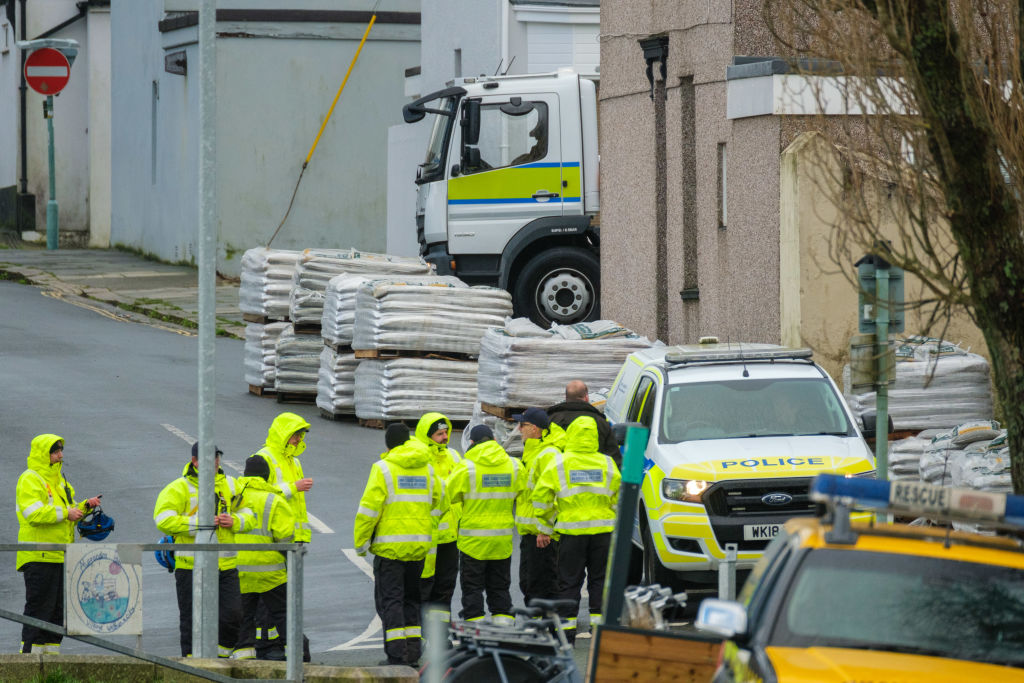
Members of HM Coastguard Search and Rescue gather after homes were evacuated when a suspected Second World War explosive device was discovered in a garden on St Michael Avenue in Plymouth. Picture date: Thursday February 22, 2024. (Photo by Matt Keeble/PA Images via Getty Images)
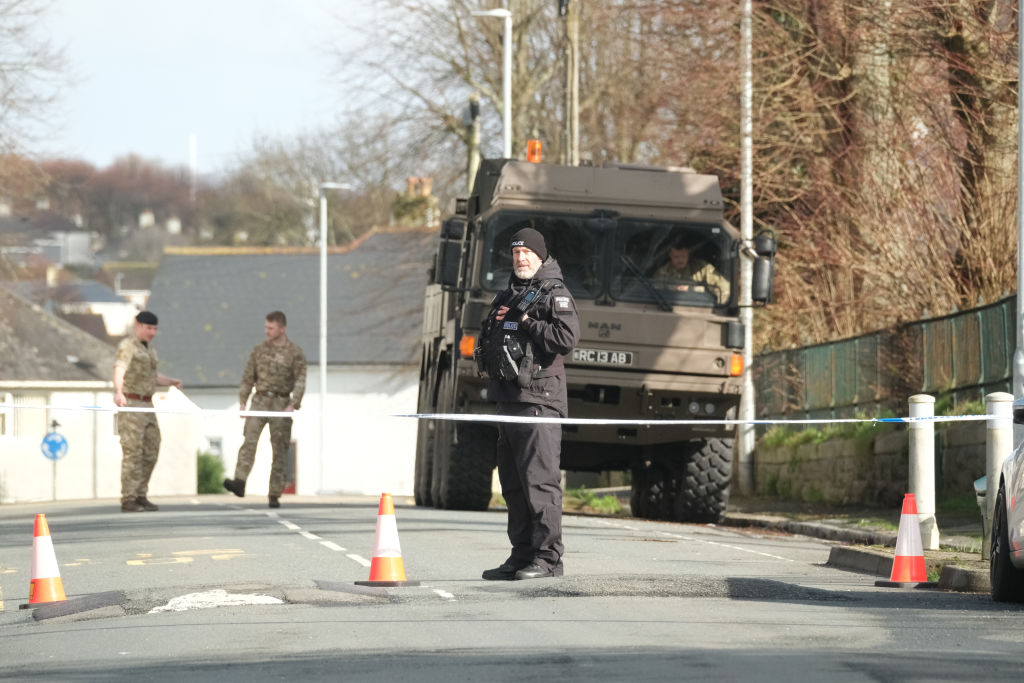
Police and bomb disposal experts at the scene near St Michael Avenue, Plymouth, where residents have been evacuated and a cordon put in place following the discovery of a suspected Second World War explosive device. Picture date: Friday February 23, 2024. (Photo by Matt Keeble/PA Images via Getty Images)
Sappers were working to dislodge the bomb, which was partially under a post-war concrete slab, which was then loaded onto a military vehicle and taken in convoy to the Torpoint Ferry slipway to be taken out to sea, where it will be destroyed in a controlled explosion.
The emergency alert system, whereby the government can push text messages to all cell phones in a given area, was activated to tell residents:
Issued by Plymouth City Council. The WWII bomb found in Keyham will be transported today 23 February 2024 at 2pm to Torpoint Ferry slipway via Saltash Road. A time limited cordon will be in place along this route between 2pm until an estimated 5pm. You are asked to leave and stay away from the cordoned area for this time period.
For more information about the route, cordon and support – go to the Plymouth City Council website. Visit gov.uk/alerts for more information.
The cordon was later extended by the council because checking the evacuation was complete had taken longer than expected, pushing back the beginning of the operation to move the bomb.
The evacuation of over 3,000 people is, the Ministry of Defence said, one of the largest of its kind in peacetime. Police officers were assisted in going door to door to ensure every home was empty by soldiers, sailors, local government employees, and even a team of mountain rescue specialists.
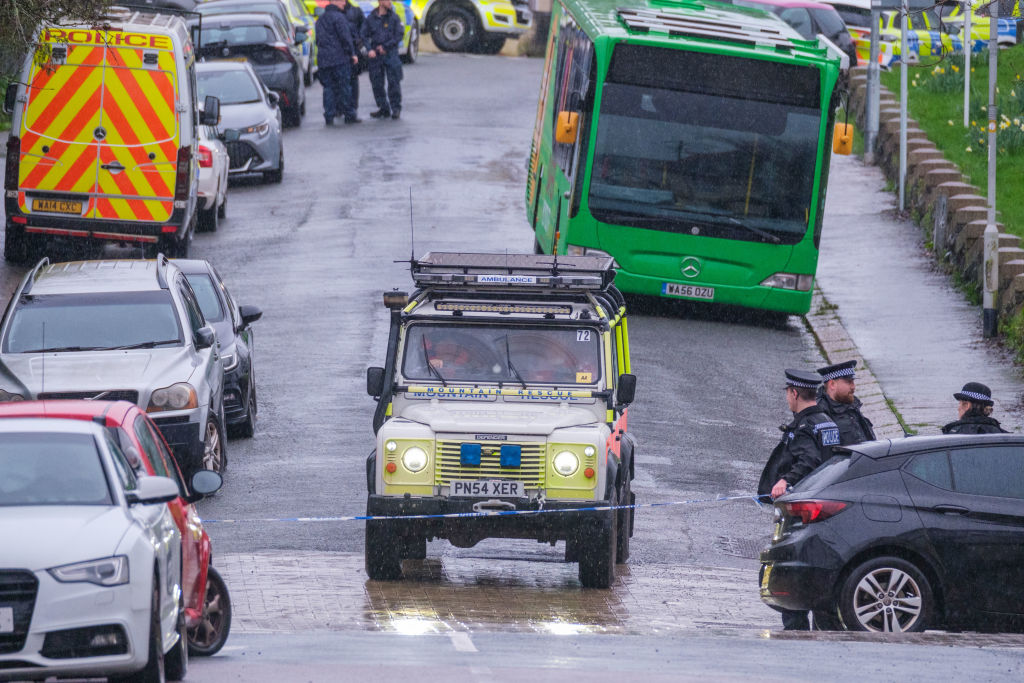
Members of Dartmoor Rescue Group by the police cordon after a suspected Second World War explosive device was discovered in a garden on St Michael Avenue in Plymouth. Picture date: Thursday February 22, 2024. (Photo by Matt Keeble/PA Images via Getty Images)
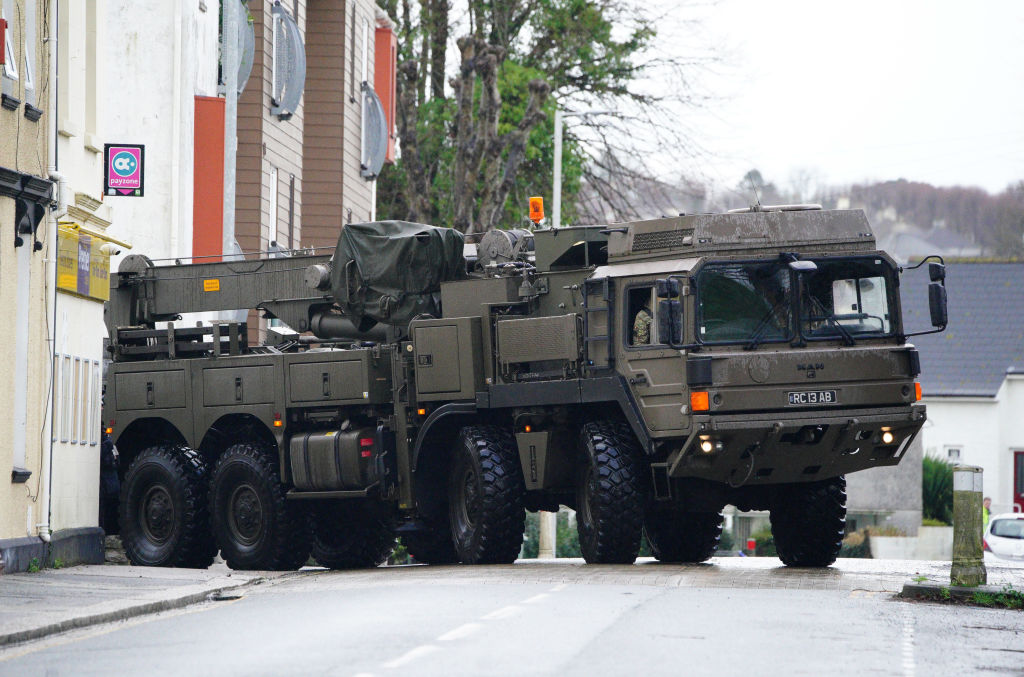
A military vehicle at the scene near St Michael Avenue, Plymouth, where residents have been evacuated and a cordon put in place following the discovery of a suspected Second World War explosive device. Picture date: Friday February 23, 2024. (Photo by Ben Birchall/PA Images via Getty Images)
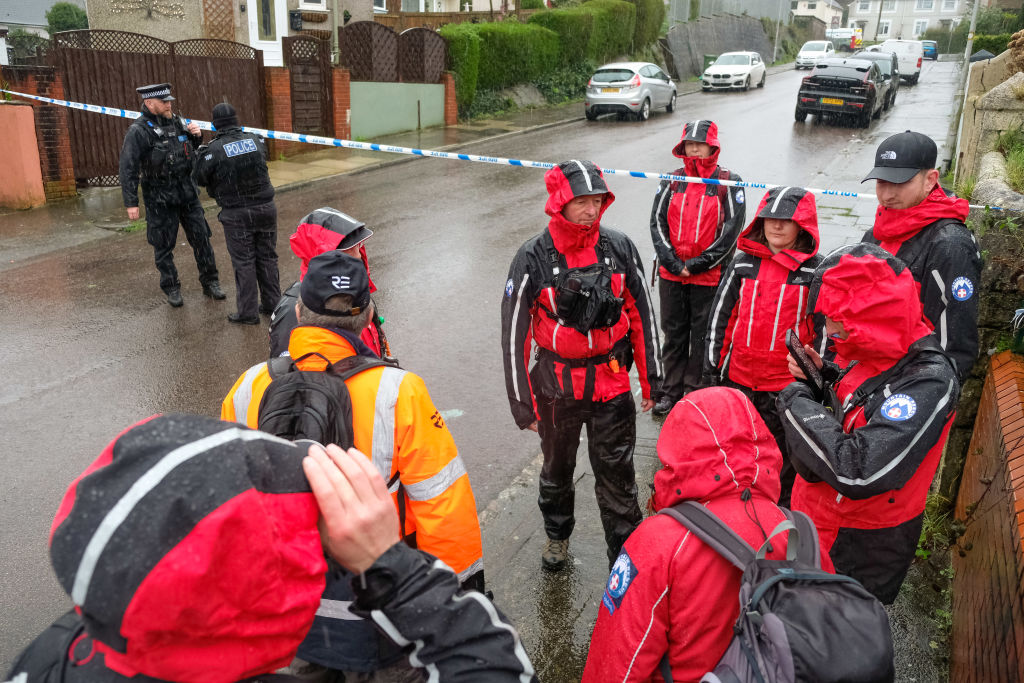
Members of Dartmoor Rescue Group by the police cordon after a suspected Second World War explosive device was discovered in a garden on St Michael Avenue in Plymouth. Picture date: Thursday February 22, 2024. (Photo by Matt Keeble/PA Images via Getty Images)
This story is developing. More follows.
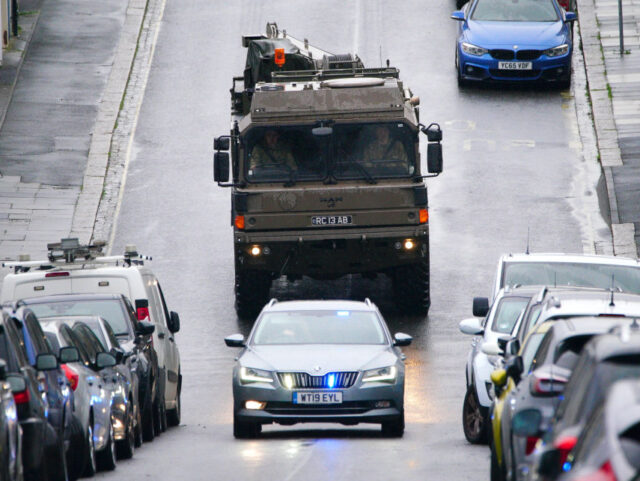
COMMENTS
Please let us know if you're having issues with commenting.